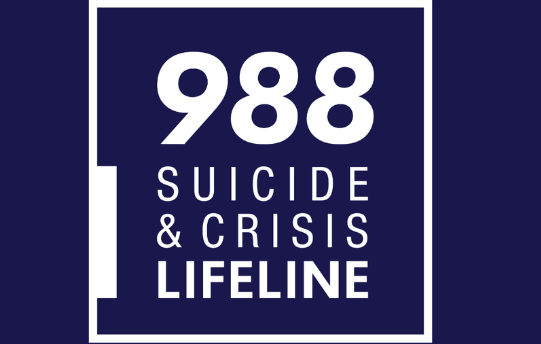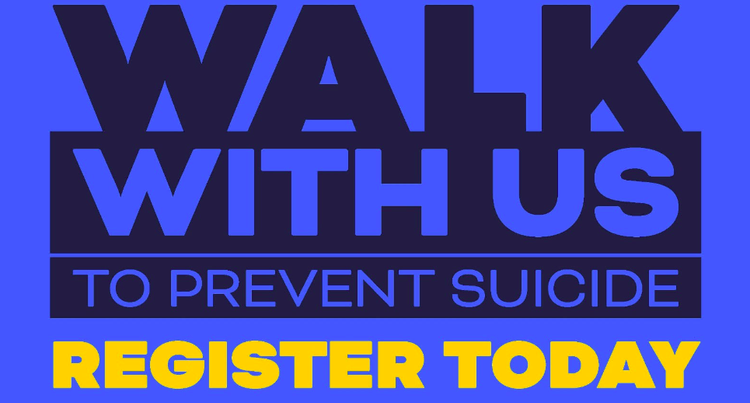June 2023 News!
Hello everyone!
June signifies the beginning of new growth and it never ceases to amaze us how quickly that is evident day-by-day. It’s as if the whole state turns green one early morning and we find ourselves surrounded by the lush, vibrant newness we waited for all winter.
It’s as if our faith in the waiting is rewarded. That sentiment often mirrors our experience with advocacy on behalf of suicide prevention and mental health. So much of what we spend our time and energy on takes time to build and grow and then suddenly, one early morning, it blooms and takes us by surprise. Please read below to learn how together, we are making progress one beautiful bloom at a time.
Our best,
Reyne & Scott Roeder

Minnesota Legislative Session Ends, Funding 988
On May 22, Minnesota’s legislative session ended, passing the S.F. No. 2588 – 988 Suicide and crisis lifeline bill. This $9.8 million dollar fund is crucial for ongoing support of the new emergency line created last summer for those experiencing mental health crisis.
With federal funding secured last year to rollout 988 awareness efforts, it simply was not enough to build a system to sustain ongoing needs in the state. "The number of people who died by suicide in 2021, went up by over 100 to over 800 Minnesotans who died by suicide," NAMI's executive director Sue Abderholden said.
The 988 suicide and crisis bill includes:
-
988 hotline center to meet the stated requirements, including connecting people in crisis to services, collaborate and coordinate service with appropriate providers or centers, and offer follow-up services.
-
dedicated 988 special revenue account in the special revenue fund to create and maintain a statewide 988 suicide prevention crisis system in accordance with federal law.
-
imposing a monthly statewide fee on subscribers of wireline, wireless, and IP-enabled voice service. The fee will be between 12 and 25 cents per landline or wireless bill, similar to how 911 is funded
This type of legislative change is why we advocate for change.

June is PTSD Awareness Month
By Diane Roberts Stoler, Psychology Today
Raising awareness of post-traumatic stress disorder, or PTSD, is crucial to eliminate stigma around it and support the recovery and well-being of those affected. Spreading awareness also plays a vital role in encouraging timely treatment. Early intervention and appropriate treatment are essential for managing PTSD effectively. When people are aware of the signs and symptoms, they are more likely to seek help promptly, reducing the risk of prolonged suffering and potential negative outcomes. There are many effective treatment options and resources available to help those with PTSD.
What Is PTSD?
PTSD is a mental health condition that can develop in individuals who have experienced or witnessed a traumatic event that posed a serious threat to their life or safety. It can also occur when someone learns about the unexpected death or severe injury of a loved one.
It is estimated that 8 million people in the US are living with PTSD. Many sufferers of this disorder are not getting the help they need. One of the reasons why many individuals with PTSD do not seek treatment is due to the stigma surrounding mental health conditions. Some people may feel embarrassed about their symptoms, while others may not even realize that what they experience is PTSD. Lack of awareness and understanding about mental health issues can also contribute to the underutilization of treatment resources.
PTSD Symptoms
The symptoms associated with PTSD can be distressing and may persist for months or even years after the traumatic event. Individuals with PTSD may feel stressed or anxious even when they are not in danger.
PTSD symptoms fall into four categories:
- Flashbacks: Re-experiencing the trauma through intrusive distressing recollections of the event and nightmares, and experiencing the same bad feelings you felt when the traumatic event took place. Flashbacks are sometimes caused by a trigger.
- Avoidance: Emotional numbness and avoidance of places, people, and activities that are reminders of the trauma.
- Hyperarousal: Increased arousal such as difficulty sleeping and concentrating, feeling jumpy, and being easily irritated and angered. Being on high alert or on guard without being in any danger.
- Negative changes in beliefs and feelings: Individuals with PTSD may develop a negative outlook on themselves, others, or the world in general. They might blame themselves for the trauma or feel a pervasive sense of guilt. They may also experience self-doubt, feelings of worthlessness, a loss of trust in others, a loss of interest in activities and hobbies, and emotional numbness.
Living With PTSD
PSTD can have a significant impact on various aspects of a person's life. Here are some specific ways in which PTSD can interfere with daily functioning:
- School and work: PTSD symptoms, such as difficulty concentrating, memory problems, and intrusive thoughts, can make it challenging to focus on tasks at school or work. This can result in decreased productivity, poor performance, and potential difficulties in maintaining employment or pursuing educational goals.
- Relationships: PTSD can strain relationships with family, friends, and romantic partners. People with PTSD may experience irritability, anger, emotional numbness, or a sense of detachment, which can make it difficult to connect with others. The avoidance behaviors that often accompany PTSD can also lead to social isolation and strained interpersonal interactions.
- Everyday activities: Engaging in daily activities, such as going to the grocery store, attending social events, or participating in hobbies, can become overwhelming for individuals with PTSD. Hyperarousal symptoms, like hypervigilance or an exaggerated startle response, can make them feel constantly on edge and anxious, even in non-threatening situations. This may lead to avoidance of certain places, people, or activities, further impacting their quality of life.
- Emotional well-being: Living with PTSD often involves experiencing high levels of stress, anxiety, and emotional distress. Individuals with PTSD may struggle with managing their emotions, leading to frequent mood swings, feelings of sadness or hopelessness, or an inability to experience positive emotions. These emotional challenges can further contribute to difficulties in daily life and overall well-being. Chronic stress associated with PTSD can have adverse effects on physical health. It can weaken the immune system, disrupt sleep patterns, increase the risk of developing cardiovascular conditions, and exacerbate other pre-existing health issues.
If you are a Veteran in crisis or concerned about one, connect with our caring, qualified responders for confidential help. Many of them are Veterans themselves.
- Call 988 and select 1
- Text 838255
- Call TTY if you have hearing loss 800-799-4889
- Get more resources at VeteransCrisisLine.net.

Call for Action: AFSP Out of the Darkness Walk St. Cloud
Mark your calendars for St. Cloud’s Out of the Darkness Walk on October 7th at Lake George. The event is sponsored by the American Foundation for Suicide Prevention.
The Out of the Darkness Community Walk is a journey of remembrance, hope, and support. It unites our communities and provides an opportunity to acknowledge the ways in which suicide and mental health conditions have affected our lives and the lives of those we love and care about.
The Community Walks, held in hundreds of cities across the country, are the core of the Out of the Darkness movement, which began in 2004. These events give people the courage to open up about their own connections to the cause, and a platform to create a culture that’s smarter about mental health. Friends, family members, neighbors and coworkers walk side-by-side, supporting each other and in memory of those we’ve lost.
We will be forming a team to honor Jackson and would love an army of support to join us. You will be able to select Team Jackson upon registering. If you are unable to join us in person but are interested in supporting our efforts, select Walk Virtually, and donations can be made directly to Team Jackson.
To register for the St. Cloud walk, visit the AFSP site here.
Resources & Can't-Miss:
Matt Orth Memorial Golf Tournament
Charity event supporting CentraCare Suicide Prevention Program in honor of Matt’s older brother, Travis who died by suicide in 2019. Saturday, August 5th at Wapicada Golf Club in Sauk Rapids.
Early Psychosis Intervention
Article from NAMI highlighting the importance of early diagnosis of mental health symptoms that if left untreated, can create a lifetime of turmoil and potentially deadly outcomes for those affected.
Summertime by George
Event from Central Minnesota Suicide Prevention Coalition at Summertime by George Wednesdays June 14, July 19, and August 16th. The interactive booth will feature info on 988 and tools to help make the community a safer place.
The Ranch: Teammates for Life
Program center offering mental health support for former and current hockey players suffering from head trauma and issues related. Offering PTSD-specific therapy, group and individual therapy, and AA in Sauk Centre.
National Suicide & Crisis Lifeline
Call or text 988.
